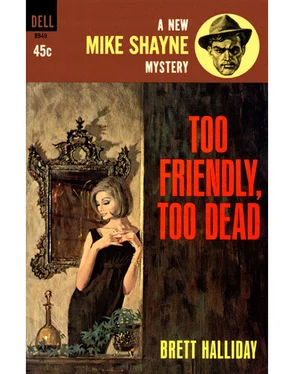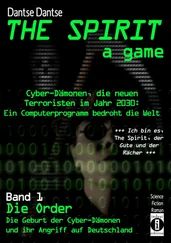Dan Fesperman - The Double Game
Здесь есть возможность читать онлайн «Dan Fesperman - The Double Game» весь текст электронной книги совершенно бесплатно (целиком полную версию без сокращений). В некоторых случаях можно слушать аудио, скачать через торрент в формате fb2 и присутствует краткое содержание. Жанр: Шпионский детектив, на английском языке. Описание произведения, (предисловие) а так же отзывы посетителей доступны на портале библиотеки ЛибКат.
- Название:The Double Game
- Автор:
- Жанр:
- Год:неизвестен
- ISBN:нет данных
- Рейтинг книги:3 / 5. Голосов: 1
-
Избранное:Добавить в избранное
- Отзывы:
-
Ваша оценка:
- 60
- 1
- 2
- 3
- 4
- 5
The Double Game: краткое содержание, описание и аннотация
Предлагаем к чтению аннотацию, описание, краткое содержание или предисловие (зависит от того, что написал сам автор книги «The Double Game»). Если вы не нашли необходимую информацию о книге — напишите в комментариях, мы постараемся отыскать её.
The Double Game — читать онлайн бесплатно полную книгу (весь текст) целиком
Ниже представлен текст книги, разбитый по страницам. Система сохранения места последней прочитанной страницы, позволяет с удобством читать онлайн бесплатно книгу «The Double Game», без необходимости каждый раз заново искать на чём Вы остановились. Поставьте закладку, и сможете в любой момент перейти на страницу, на которой закончили чтение.
Интервал:
Закладка:
“Son, you were a boy, with all of a boy’s stupid biases and insecurities.”
“Still, you should’ve told me to shut the hell up.”
“I did give you the occasional lecture on tolerance. But I never wanted to get too specific-might’ve blown my cover. Besides, it wasn’t like you were in danger of becoming a skinhead.” He turned somber, looking off into space. “I should’ve told your mother from the beginning. Our marriage was a career move, a camouflage. Although then we would never have had you. And with no you, there’s no David.”
He seemed the most uncomfortable when talking about the letter he wrote in ’92.
“When I heard you were going abroad I was thrilled. You were perfect for the job. Then Markovik sent me a letter. He said it would be a shame after everything that happened in fifty-nine if my son were to create further problems for him and his country. He wanted me to assure him that you would write favorable stories. He had no idea of how a free press functioned, of course. I believe he was convinced that I really could influence what you wrote, not just because I was your father, but because of my position at State. I knew that was insane, so I sent the letter. I told myself it was to protect your integrity, to protect you from embarrassment, but it was really just to protect me. Then, when things fell apart so badly in your life, well…”
His words trailed off.
“I was nearly thirty-six years old, Dad. Old enough to fend for myself.”
He shrugged, and for a while we were silent.
“What will you do now?” he finally asked. “Are you finished with this business?”
“I don’t know. I need to think about it. Unless Lothar’s willing to help, I’m not sure there’s much more I can find out anyway. But one thing’s still bothering me. Why is Breece Preston so interested? I didn’t want to scare you, but his man Curtin has been following me across Europe.”
Dad was ashen. He poured himself a refill and shook his head.
“Well,” he finally said. “He and Ed did work together in Belgrade.”
“I was wondering if you knew that. Bobik mentioned it as well.”
“One thing people say about Preston is that he’s always a pro about covering his ass whenever he fucks up. Maybe this is an example. A few hundred million in government contracts would certainly seem to make it worth his while to stop you, if he thinks you might find something damaging. Quit while you’re ahead, son. Better still, quit while you’re alive.”
“Like I said. I’ll think about it.”
Litzi joined us for dinner that night, a subdued affair of cold cuts and beer. The three of us seemed listless and spent. But after coffee the conversation gained momentum, and I detected an odd chemistry of collusion still at work between Litzi and Dad. Every time I looked up from my cup it seemed they had just shared a glance, a nod, a significant gesture of solidarity, even sympathy.
“What is it between you two?” I finally asked. “You’re like a pair of identical twins, passing thoughts back and forth right over my head. It’s rude and it’s pissing me off. And I hope I made that sound like a joke.”
“You didn’t,” Litzi said, “but I understand. Our conspiracy of silence was completely unfair to you, but it was never about fairness, or even about you. I was loyal to your father’s privacy because he was loyal to mine.”
“About your work for the Verfassungsschutz?”
“Not just the work. The consequences.” She turned toward Dad. “You’ve always known, haven’t you? There must have been some kind of report afterward.”
He nodded gravely.
“You don’t have to tell him,” Dad said. “It’s got nothing to do with him or me.”
“That’s why I want him to know. Because it concerns only me. I hid it from my husband for eleven years of our marriage, and it’s one of the reason he left. He always knew something terrible was getting in our way, but he never figured out what it was, and then he stopped trying. If Bill and I are to continue as friends, he should know.” She turned to me. “Will we continue to be friends?”
The old Litzi Strauss bluntness was on full display, as endearing and unnerving as ever. I couldn’t possibly say no.
“Something more than friends, I hope.”
Then she told me her story, one last painful disclosure to cap a tumultuous day.
Making friends with the so-called radicals among her fellow university students had been easy enough. She liked them, even though she found their politics uncomfortably strident. They like her, too, and quickly came to trust her. As time passed, her reports to the Verfassungsschutz grew shorter and less detailed. Her handler complained, and so did her handler’s bosses. She asked to be released from the arrangement. Not without results, they said. They threatened to expose her.
Then she came up with something big-urgent word that a young German woman on the run, an actual member of the Red Army Faction, would soon be passing through Vienna, and needed safe harbor for one night only. Litzi found out the date and location, and passed them along. The result: a botched raid in which the German fugitive opened fire on the police. She was captured, as were two young women living at the house. But a third woman, new to the group and a friend of Litzi’s, was killed in the cross fire.
The campus group scattered in the wake of the tragedy, which provided Litzi with the perfect out. The government found her a job, and for the most part left her alone. But the image of her bright young friend followed her wherever she went.
“When I couldn’t conceive a child, I knew it was part of my punishment,” she said. “We tried clinics, fertility drugs, in vitro. Nothing worked. We even discussed finding a surrogate, but I knew I’d never be able to use another young woman for my own benefit, not again. And when my husband sensed my heart was no longer in it, well…”
She shrugged, as if trying to slough off the intervening years in a single gesture of surrender.
35
I walked Litzi home well after midnight, but didn’t stay. Both of us felt that my proper place that night was under my father’s roof. Too restless to go straight home, I detoured into twisting lanes and alleys through the heart of the city. Even there, Vienna was never completely at peace. The troubled and the restless were forever on the prowl, shoulders hunched. Car wheels hummed out along the Ring, and the legions of surveillance cameras gazed eternally from on high.
I ended up on a narrow street I remembered from my teens-playing soccer with friends, the ball bouncing wildly off walls and door fronts, skipping crazily on the cobbles. At the end of the block was an old bookstore that had once been a favorite of my father’s, smaller than Kurzmann’s but in far better shape. I recalled the fussy old proprietor, who’d had little patience for fidgety boys, although the shop itself had been a wonder, with a richer concentration of treasure than most of Dad’s haunts. By necessity, probably, since its holdings were crammed into a single square room with only a tiny office in the back.
I peered through the picture window into the gloom of its high shelves. A streetlamp lit the view. A tapping noise made me whirl around, but it was only water dripping from a downspout. I read the familiar name painted on the plate glass: Der Flugel, German for “The Wing.” Then I noticed something that had never registered before. Beneath the name was a tiny drawing of a piano. Flugel was also slang for a grand piano, because of its winglike shape when viewed from above.
In the middle of a busy day, with people and cars hurtling by, I doubt my mind would have been focused enough to make the connection that occurred next. But in the calm darkness of two a.m. the tiny piano stirred up an old name from deep in the readings of my past: Max Flugel, nickname Das Klavier, or the Piano.
Читать дальшеИнтервал:
Закладка:
Похожие книги на «The Double Game»
Представляем Вашему вниманию похожие книги на «The Double Game» списком для выбора. Мы отобрали схожую по названию и смыслу литературу в надежде предоставить читателям больше вариантов отыскать новые, интересные, ещё непрочитанные произведения.
Обсуждение, отзывы о книге «The Double Game» и просто собственные мнения читателей. Оставьте ваши комментарии, напишите, что Вы думаете о произведении, его смысле или главных героях. Укажите что конкретно понравилось, а что нет, и почему Вы так считаете.












